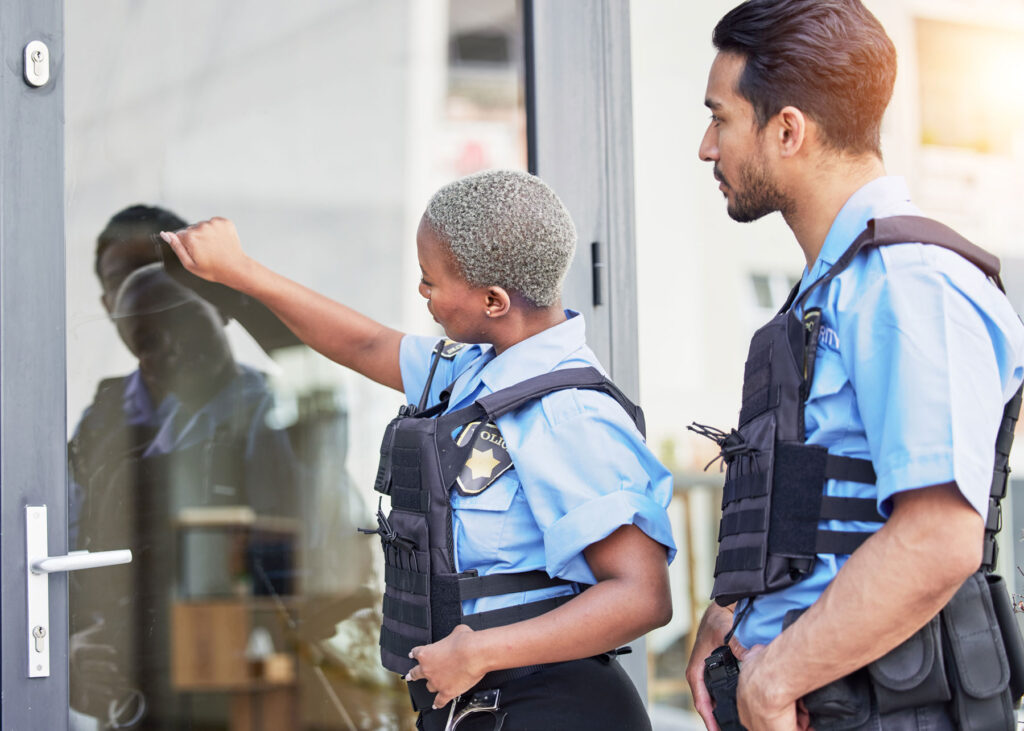 What are your rights when the police come to your home?
What are your rights when the police come to your home?
Whenever you encounter the police, knowing your rights is important, especially when they come to your home. Just because you are innocent of a crime doesn’t mean you can’t get in trouble. There are many places where you might encounter the police so know what they can and can’t do, and what you are allowed to do when interacting with them.
What can the police do at your home?
Police are generally allowed to go anywhere in public that other members of the public are allowed to go. This could involve stopping/driving on any roadways, making observations in public neighborhoods, or walking up to your front door to make an inquiry (often called a knock and talk). If the police knock on your door, the first thing to remember is to stay calm and treat them with respect – this goes a long way in keeping the interaction calm. Whatever reason they are there, you do not have to invite them in unless they have a warrant. Otherwise, it’s always best to just speak with them at your door and ask for their identification before doing so. If the police are simply there to ask if you witnessed a crime in the neighborhood or have seen someone like a missing child, you can choose to be helpful and let them know if you saw anything. Or you can simply tell them you have no helpful information to provide. If they do have a warrant, you have the right to request seeing it before letting them in. Be sure it is signed by a judicial officer and that it is specifically for your address. The warrant might also list specific areas they are allowed to search (or for specific items) and will have the name of the person, places, and things to be searched.
What should you do during a search of your home?
Again, remain calm and don’t escalate the situation if the police search your home. Remember that you have the right to remain silent as they will often ask you questions while searching. You do not have to answer any questions, and they can’t arrest you simply because you refuse to speak to them. You can also record what the police do during the search and take notes as long as you don’t interfere in what they are doing. Ask for each officer to identify themselves, their badge number, and give you a business card if they have one. Make note of anything they take and every room they search, as well as any damage they might cause to your home. Police are often allowed to ask you to step out of an area to be searched or, sometimes, even detain you for a period while a search is taking place. Don’t fight, just ask if you are required to as they ask, and then do so if required. You can always ask a lawyer later if the police command was justified or open to challenge. If they do end up arresting you at the end of the search, don’t resist, and remember to remain silent and ask for an attorney. If they read you your Miranda rights and you ask for an attorney, they can’t ask you any more questions without an attorney present. Even if you are innocent, it’s always best to have an attorney or a public defender present for any questioning. Remember that the police are very good at interrogating people and are allowed to lie about certain things.
What do you do if your rights are violated?
If you feel your rights have been violated during a search of your home, it’s even more important that you record all the details as they happen. Make sure you have all the information from the search, and you can file a complaint with internal affairs or a civilian complaint board (if your city has one). Beyond that, you can contact a law firm that specializes in civil rights cases regarding the police, and your rights while in your home or anywhere else. The Civil Rights Litigation Group has handled many cases against the police and can help you protect your rights. Call for a free consultation.

